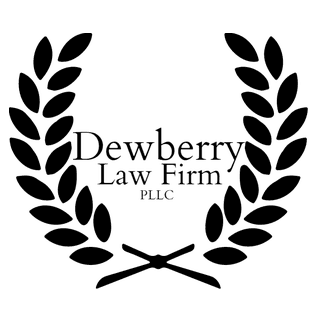
Oklahoma COVID-19 cases are still increasing, and experts are estimating cases will peak towards the end of April. All across the U.S., hospitals and care facilities are overcrowded, and most have banned anyone except the patient from entering. If you or a loved one are hospitalized, you are unable to have someone there to advocate on your behalf.
To help protect yourself should you need to be hospitalized, having a Durable Power of Attorney and an Advance Directive for Health Care naming a loved one will enable that person to advocate on your behalf from outside the hospital. The best time to sign these documents is before it becomes necessary.
An example of a real-life situation is
: a person is in critical care at the hospital
and needs to enter hospice care. Many hospice care facilities require a Durable
Power of Attorney or Advance Directive for Health Care prior to admission. But,
no one except the patient can enter the hospital to have the patient sign any
documents. Now what happens? You would be left with scrambling for a
solution.
As a nation, we have been dealing with unprecedented events so being prepared is the best practice. While this scenario is alarming Dewberry Law team can prevent this scenario from ever occurring! Call now as we are helping clients over the phone during this crisis! Don’t get caught wishing you had done something! We can help you with a Durable Power of Attorney and Advance Health Care Directive and any other estate planning needs. We also have the ability to notarize documents using Oklahoma’s new law of remote notarization, which does not require that you leave your home!
As for COVID-19, keep doing your part to flatten the curve by staying home when possible!
Mineral Rights Inheritance - Fragmentation and its Effect on Ownership
When property is handed down within a family, usually any mineral rights owned by the original owner are handed down with it.
If you have inherited this type of property, you may be interested in finding how much it is worth.
It is important that you first verify ownership of the mineral rights sale, which is becoming more and more challenging. This is due to fragmentation, which has affected ownership of a large number of mineral estates.
What is mineral rights fragmentation? It is the continual division of mineral rights into smaller and smaller pieces, either through inheritance or the sale of portions of an owner’s mineral estate.
This occurs when successive generations of owners who do not wish to sell their mineral rights, pass them down to multiple people, such as parents who pass their estate to their children.
When each child passes their estate to their children, the estate which was already only a fraction of the entire estate owned by the parents is further divided. Over generations, this has resulted in what may have once been a very large mineral estate, being divided to the point that the original estate has many different owners. This often results in confusing ownership records.
At Dewberry Law, we specialize in this area and can help minimize your stress of dealing with mineral rights. Please call us today to get this process started – 405.261.8900.

Many people believe they have to either choose a trust or a Will to divide their estate among their heirs. However, it is possible to place a trust within a Will, which is referred to as a testamentary trust. This trust only goes into effect after death, unlike other trusts that deal with assets over a lifetime.
The most important benefit of a testamentary trust is that it doesn’t go into effect until after you die. This means you can revoke or edit the trust completely until that day occurs. It also means you don’t have to administer that trust because it has not yet gone into effect.
In many instances, a person may want to create a testamentary trust to provide a benefit for younger children or grandchildren. Also, the testamentary trust can provide protection from your heirs’ creditors, so the trust may be a good vehicle for protecting assets that you pass to the next generation. Finally, the testamentary trust can ensure that the members of a blended family are treated equitably after one of the spouses dies.
Setting up a testamentary trust is pretty simple. It is created by including trust provisions (an instrument in writing executed by a settlor, used to constitute a trust) in your Will, and then upon your death, your executor, will place the appropriate assets from your estate into the trust. The person or banking institution that you have designated as your trustee will manage the assets for the beneficiaries that you designated in your Will.
While testamentary trusts are flexible and beneficial to many, they can occasionally be just as complicated as a regular trust. If you are considering a testamentary trust, contact us today to see what we can do to help walk you through the process. At Dewberry Law Firm, it is one of our many specialties, and we will help you see it through successfully for you, and your loved ones.

Why a Holographic Will is a Bad Idea.
First of all, what is a Holographic Will? Is it Sci-Fi-related? It actually isn’t as exciting as it sounds – it is the term used to describe a handwritten will. This type of will is legal in Oklahoma. To meet the requirements, the will must be entirely in the Testator's (or the person writing the will) handwriting and signed. A holographic will does not need to be witnessed; it does not even need to be dated, although not dating your will is a bad idea if it’s not the only will you have ever done.
Holographic wills appeal to many people who like the idea of saying exactly what they want to say in their wills and who feel their situations are simple enough that they don’t need to spend the money for an attorney-drafted will (or even a form will). However, assuming that your will meets the legal requirements for a holographic will, there are good reasons not to do one. Most people who write their own will(s) don’t know how to do it properly, and the potential for making costly mistakes is enormous. Only when the writer of a holographic will dies do those mistakes come to light, leaving the grieving family left to bear the burden of those mistakes.
One of the most common problems with holographic wills is ambiguity. The intended meaning may have been clear to the testator, but those who are reading the will can be left with great confusion over the testator’s true intentions. For example, one man’s holographic will left everything to “Mother,” without identifying the person by name. The man’s mother survived him. So did his wife, whom he affectionately called “Mother” ever since their child was born. Which of these women was intended to receive his estate? One ambiguous term can result in family disputes and legal action.
In conclusion, you will always be better protected by doing formal estate planning with the assistance of an experienced attorney. Our attorneys specialize in estate planning and can help ensure loved ones will not have an additional stressor to deal with after a death occurs.


